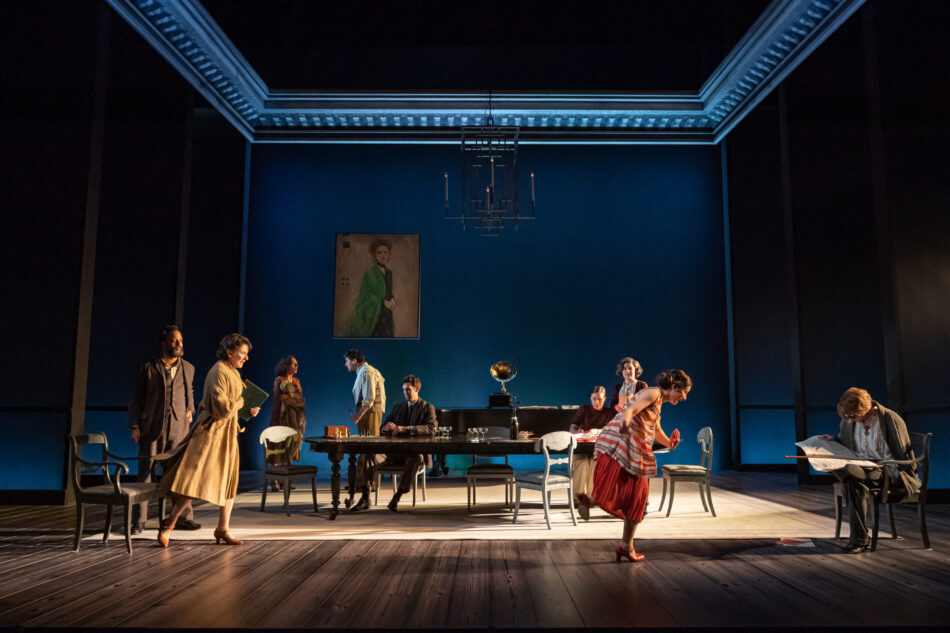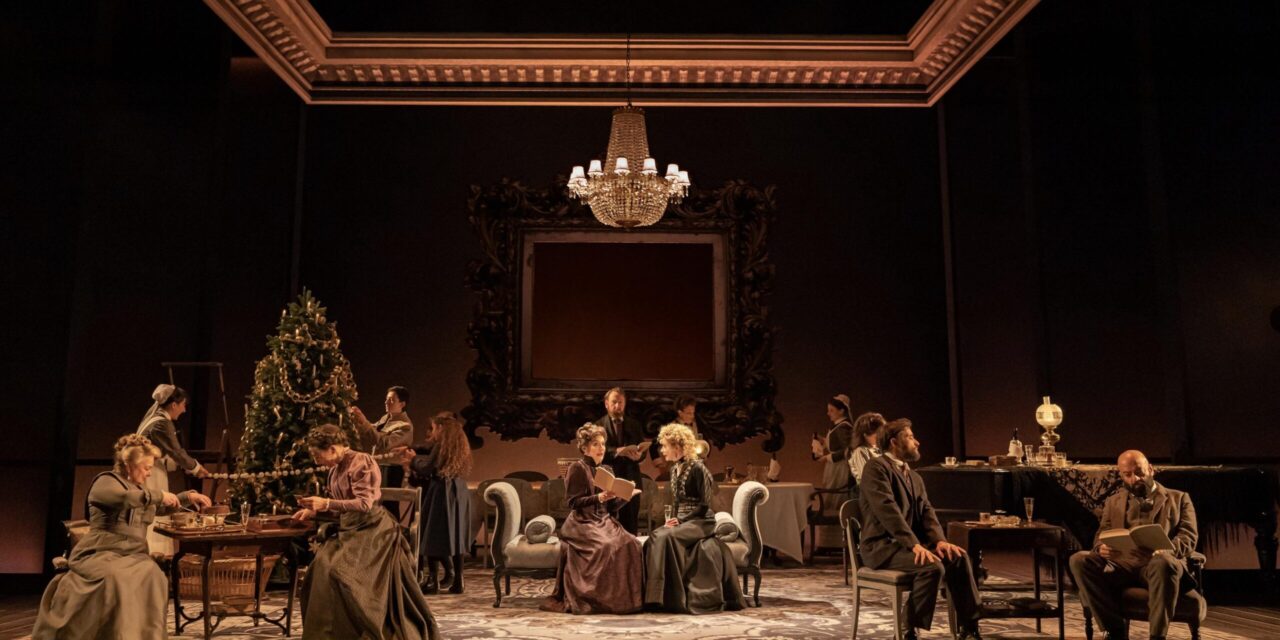Towards the end of Leopoldstadt, a young writer named Leonard is handed a sheet of paper with his family tree on it. The chart spans four generations and bears the imprint of two dozen lives that have been cut short by tragic endings: illness, suicide, Auschwitz. This dense network of a Viennese family’s tarnished past is what Tom Stoppard’s new play follows selectively across six decades, from 1899 to 1955. The result is a richly peopled family saga that does not hesitate to wear its bleeding heart and genealogical convolutions on its sleeve.
At age 82, Tom Stoppard is secure in his position as one of Britain’s greatest living dramatists. Yet Leopoldstadt, which is reportedly his farewell to the stage, is a humbler play than its epic proportions and autobiographical echoes may suggest. With its whopping cast of 41 actors, Patrick Marber’s majestic but unfussy production at Wyndham’s Theatre brings to life a work of icy sorrow that gets significantly richer as it moves forward in time. Throughout, we encounter the various members of the Merz and Jakobovicz clans on five different dates—1899, 1900, 1924, 1938, and 1955. It’s a timeline that skips over two world wars and countless horrors, but don’t be fooled: their indelible marks are all over the place in this slow-burn account of multigenerational decay.
Like Arcadia, much of Leopoldstadt revolves around a stately dinner table, with characters offering lengthy disquisitions on a range of subjects, including Jewishness, anti-Semitism, and cultural assimilation. In the absence of a strong narrative momentum, the play indulges in prolonged moments of friendly debate and everyday chatter, allowing its characters to be verbose and somewhat preachy. Sure, there are scenes of heightened tension, most notable of which occurs in 1938’s Kristallnacht, when the Merz family gets evicted from their home. But these often give way to more reflective, static episodes.
As obsessed as it is with probing Jewish identity, Stoppard’s play is at its most powerful when it shifts its attention to the broader problems of historical memory. “It’s like a second death, losing your name in a family album,” the matriarch Emilia Merz says early on. The question of what to remember and what to forget, whether to live with or without history, is an important one for nearly all the characters, though they express it only rarely. The final and strongest scene—which takes place in 1955, unbearably heavy with the weight of the Holocaust—delves deep into this knotty terrain and boasts the play’s most emotive and memorable moments.

The cast of Leopoldstadt at Wyndham’s Theatre. Photo: Marc Brenner
Marber’s direction favors painterly tableaus and semi-stylized flourishes, which complement the play’s cushioned realism, even if at the expense of some consistency. He is adept at orchestrating an exceptionally large cast, which is commendable for remaining on the same wavelength throughout this demanding piece. It feels unfair to single out a few names from what is essentially an ensemble work, but there are particularly nuanced performances by Adrian Scarborough as the baptized Jew Hermann, and by Ed Stoppard as Hermann’s brother-in-law, mathematician Ludwig. The concluding scene derives much of its finesse from the trio of Sebastian Armesto, Jenna Augen, and Luke Thallon, who play the three surviving members of Hermann’s extended family with remarkable texture.
As the decades pass by, the homely splendor of Richard Hudson’s elegant set forfeits its warm hues and embraces a steely barrenness. Brigitte Reiffenstuel’s wide-ranging period costumes and Neil Austin’s shrewd lighting further convey the monumental changes undergone by the play’s characters and setting. What this visually restrained production wants to do is to foreground the cast’s performances: it relies chiefly on them to build—and, later, dismantle—its prevailing atmosphere of domestic intimacy.
Though it feels baggy at times, Leopoldstadt ends up striking one as an oddly fitting conclusion to Stoppard’s outstanding career. Just as motifs from his earlier plays waft through it with unassuming ease, the dramatist’s own family history provides a poignant backdrop to it. As far as it may be from some of its forerunners’ bravura, this sprawling memory play still betrays a touch of mastery in its tragic composure. Stoppard’s exit is more a whimper than a bang, but not without a grace of its own.
This post was written by the author in their personal capacity.The opinions expressed in this article are the author’s own and do not reflect the view of The Theatre Times, their staff or collaborators.
This post was written by Mert Dilek.
The views expressed here belong to the author and do not necessarily reflect our views and opinions.


















